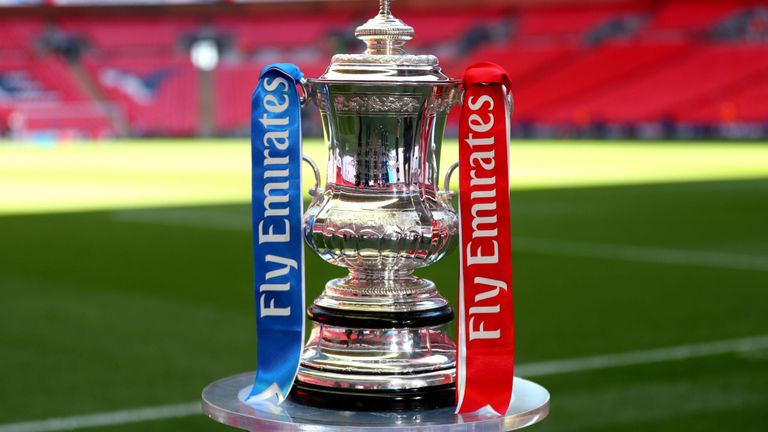In our exclusive interview read about Dan Abrahams explains the right mental preparation can give Watford the best chance to make history in the FA Cup final.
FA cup Final.
Players arrive suitable and booted at the national stadium before changing into a huge, unfamiliar dressing room.
They emerge to be attentive to an opera singer belting God Save the Queen and exchanging with Prince William a few awkward words as he makes his way down the red carpet shaking hands of everyone.
A crowd of nearly 90,000 – more than four times Vicarage Road’s capacity – creates an atmosphere unlike any other domestic fixture, a nervous buzz of anxiety and excitement.
For some, they thought they would never see the prospect of winning a major trophy, and may never happen again. It’s another big day out for others in the growing history of their club.
For the former, it means more. It’s got to. Over the past eight years, Manchester City has won eight major trophies. They’re used to that pressure. It’s not Watford, who last reached a cup final in 1984 and never won a big honor.
Sure, the Hornets, who will win the FA Cup in the latest football league, were in three play-off finals of the Championship – two at Wembley and one at the Millennium Stadium – but that’s different.
The same also applies to their players.
Heurelho Gomes scored a semi-final with PSV in the Champions League, but that was over a decade ago. For the last 10 minutes of Juventus ‘ defeat in the 2015 final, Roberto Pereyra came off the bench, but by then they were already 2-1 down and chasing the game.
As sport psychologist Dan Abrahams explains, the whistle of the referee signaling the beginning of a career-defining game is a potentially overwhelming position for any player to be in.
“The implications of the different atmosphere can bring performance anxiety, which can be crippling,” says Abrahams, Working as a consultant for AFC Bournemouth and Sweden’s top-flight side Ostersunds, having previously worked with the FA, PFA, LMA and a host of Premier League and Championship clubs throughout his 19-year career.
You see it in one-off games all the time, as players fail to deal with the opportunity and their performance levels fall well below the standards they are capable of.
They misplace passes, overwhelm crosses, and miss opportunities in any other game they would score.
Meanwhile, you can check out Betway Football Betting to see some of its top betting options.
“As the name performance anxiety suggests, players can experience psychological anxiety and physiological stress response,” says Abrahams.
“Players develop tunnel vision, where they no longer see a 360-degree view of the pitch. It will make them feel lethargic and flat, so they’re slow to anticipate and are slow to make decisions.
“Their first touch goes and their motor behaviour, which is essentially their technique, atrophies. Subsequently, what you see is a player playing worse.”
Fortunately, there is a way to fight the incapacitating side-effects of such an opportunity for the Hornets. Just ask the 2013 FA Cup heroes, The Wigan Athletic.
The Latics, who were to be relegated three days later to the Championship, produced one of the biggest cup shocks ever to win the final, with a Ben Watson stop-time header proving enough to secure their first and only big trophy.
That day’s the opposition? City of Manchester.
“Things were very calm pre-match. No fear, no pressure,” then-captain Emmerson Boyce told the Daily Mail ahead of Wigan’s fifth-round meeting with Pep Guardiola’s side in 2018, which they also won.
Achieving that composed state of mind before taking to the field is where Abrahams, who also held the position of Lead Sports Psychologist with England Rugby from 2017-18 and England Golf from 2013-16, comes in.
“Sticking to your normal routine is really important,” he says.
“You’re trying to help players perceive the game in the same way they perceive every game.”
Abrahams uses specific psychological techniques to help players overcome nerves and get involved with the idea.
“Self-talk, breathing techniques and directing your focus and attention can help,” he says.
“A player can manage their stress levels by speaking to themselves: “OK, stop. This is a big game, but all I’ve got to do is stick to what I usually do. I can’t force a great performance or guarantee a great result. I’ve just got to focus on what I can control.”
“It’s the controlling the controllable philosophy.”
From there, they can disassociate the gravity of one of their career’s biggest games with playing football for 90 minutes – something they do every week.
According to Abrahams, approaching the game with a rational mindset is vital, believing players should ignore the notion of winning and losing in favor of focusing on what they can control – which is easier to say than done given the stakes.
“Players need to, in pressure situations, focus on themselves,” he says.
“That’s their responsibilities within their role, their mental skills, having a consistent personality on the pitch, playing with positive intention and at the right intensity.”
“It’s easy to say these things, which seem small things and throwaway remarks but, ultimately, these can make or break a player’s performance.”
We see a biological reaction when someone engages in these behaviors that can have a noticeable effect on their performance.
“There’s an increase in blood flow to the front part of the brain and a greater amount of oxygen-rich blood flowing around your body,” Abraham says.
“Players also release hormones such as testosterone and adrenaline – the building blocks of power, strength and speed – as well as dopamine – your interest chemical – and endorphins, which are your feel-good chemicals, in the appropriate amounts.
“That would result in a player being quicker to anticipate, make faster and maybe more accurate decisions. They will be quicker, stronger and more explosive.
“Obviously those are the kind of things you want.”
It would be naive to suggest that this might raise Watford’s players ‘ technical ability above Manchester City’s. It won’t. But it will give them the best chance to seize the kind of opportunity that occurs once every 35 years.







